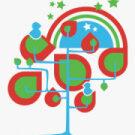Takoma Children’s School plants the seeds for a lifelong love of learning.
As a play-based program inspired by the Reggio Emilia philosophy, we believe that our children come to us as capable, confident learners. As teachers, we seek to be co-creators of knowledge as we work together with children to investigate topics of interest to the whole class or a subset of children. Based on this spirit of inquiry, no year is the same as the one that came before, since the various projects the class investigates throughout any year is driven by the children. Language, pre-literacy, social/emotional learning, the basics of mathematics and science inquiry are all embedded in the children’s daily experiences as they learn through play. With three classrooms and about 50 children enrolled, we are “just the right size.” Our teachers focus on developing strong relationships with the children in their classroom as well as providing educational experiences.

Differences among children and their families, as well as commonalities, are celebrated. Children are empowered to take on responsibilities such as pouring their own water, setting the lunch table, or watering plants. This empowerment facilitates children becoming confident and responsible individuals. TCS children are regularly offered choices, such as “would you like to put away the blocks or the art supplies,” which satisfies children’s natural desire for a sense of control in their young lives.
Social/emotional development is a focus for children of this age. We recognize that conflict and mistakes are opportunities for growth, and we help children understand and learn from them. Children are given the tools and vocabulary they need to learn how to solve problems and conflicts independently. Conflict resolution techniques are modeled and fostered daily. By following class routines and learning how to get along with individuals and in groups, children learn patience, negotiation skills, how to take turns, and how to share. Through modeling, positive reinforcement, and attentiveness to the feelings of others, children develop respect and consideration for adults as well as their peers.
As a play-based program, children are given long periods of time for uninterrupted play to delve deeply into an activity or goal they’ve set. Therefore, while every classroom has weekly music class, we prefer to not have additional special classes that interrupt the flow of children’s work and explorations. Given time, children will take their explorations to a different level each time they work with a material. We may have enrichment visitors to various classrooms throughout the year, especially to support an investigation that is occurring in a classroom.
